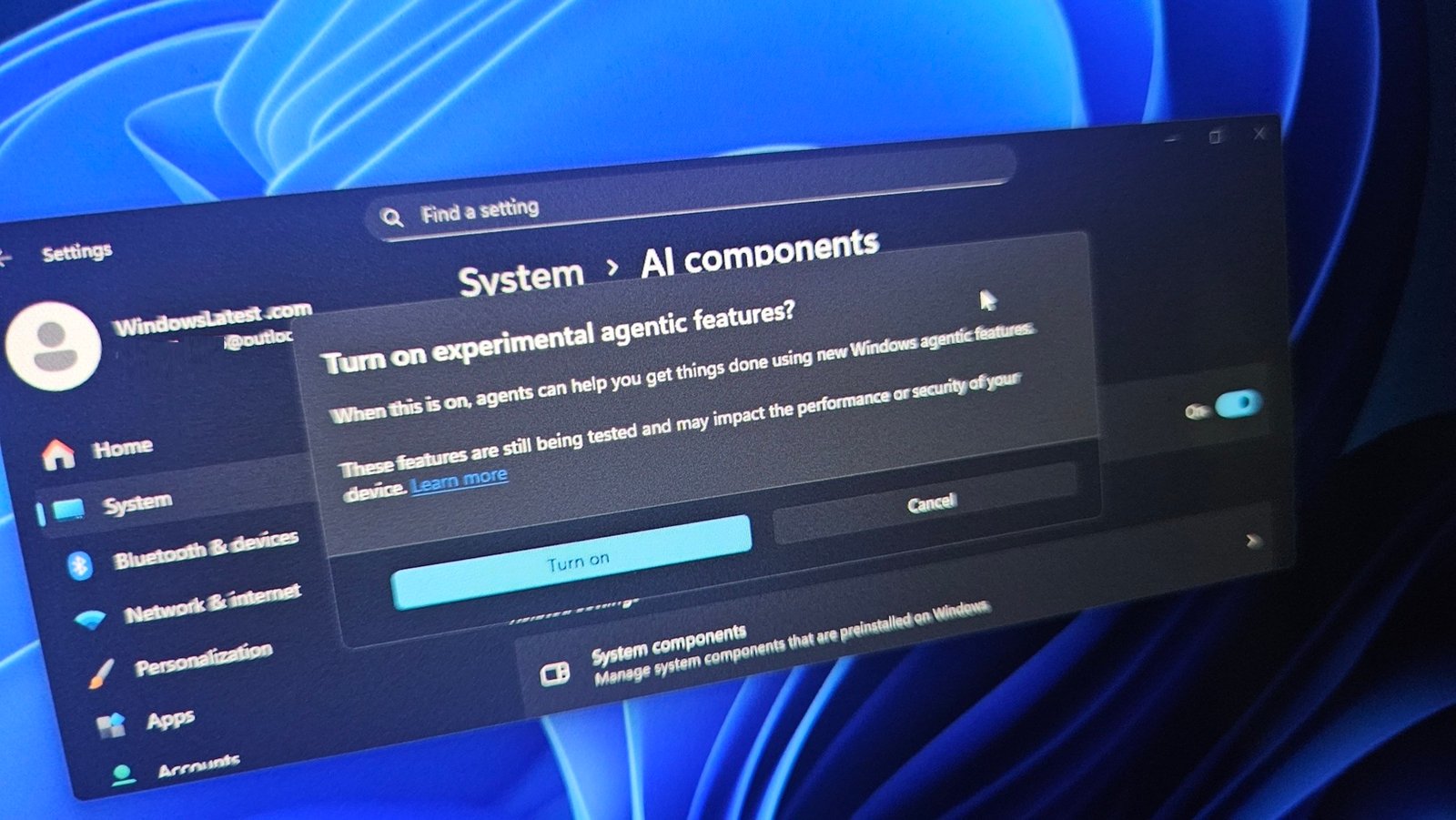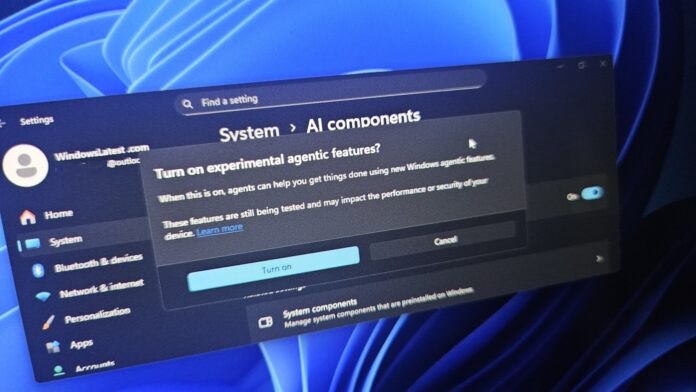
Microsoft is moving ahead with its plans to turn Windows 11 into a full-fledged “AI” operating system amid the Copilot backlash.
The first big step in that direction is an experimental feature called “Agent Workspaces,” which gives AI agents access to the most frequently used folders in your directory, like Desktop, Music, Pictures, and Videos. It will also give AI agents their own runtime, desktop, user account, and the ability to always run in the background if you turn on the feature.
New agentive features in Windows 11
As soon as I installed Windows 11 build 26220.7262, Windows Latest noticed a new toggle “Experimental Agentic Features” inside the “AI Components” page in the Settings app > System.
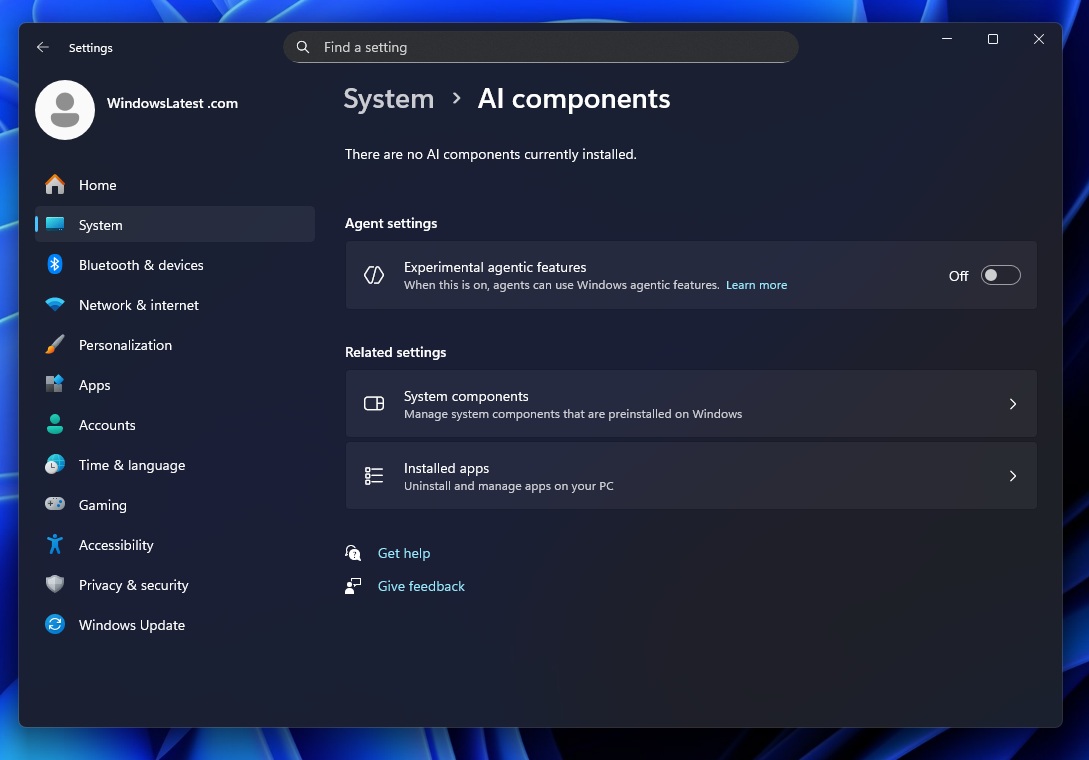
This turns on “Agent Workspace”, but it doesn’t work right now, and in case you’re wondering, it’s only available to Windows Insiders in the Dev or Beta channels.
What are AI agents and how do they work?
Before I explain what Agent Workplace is, you need to understand AI agents. If you’ve ever used ChatGPT, you may have come across ‘Agents’. AI agents have their own interface, and navigate exactly like a human.
For example, if you ask ChatGPT’s agent to book a trip, he or she will open Chromium on Linux in an Azure container, search the query, visit different websites, navigate to each page and book a flight ticket using your saved credentials. An AI agent tries to mimic a human, and it can perform tasks on your behalf while you sit back and relax.
This is the main idea that Silicon Valley is trying to sell.
Until now, these agents were limited to cloud containers with Chromium and Linux terminal access, but since Microsoft wants Windows 11 to become an “AI-native” OS, it is adding agent workspaces.
Agent Workspace is a separate, contained Windows session created just for AI agents, where they get their own account, desktop, and permissions so they can click, type, open apps, and work on your files in the background while using your normal desktop.
Instead of letting an agent act directly as you, Windows creates this additional workspace, gives it limited access (such as specific folders like Documents or the Desktop), and keeps its actions separate and auditable.
Each agent can have their own scope and access rules, so what one agent can see or do doesn’t automatically apply to others, and you stay in control of what they’re allowed to touch.
I find the idea of Agent Workspace somewhat similar to Windows Sandbox, but it’s not designed with security or privacy in mind, and it could be one of the ways to have fun with AI on Windows 11.
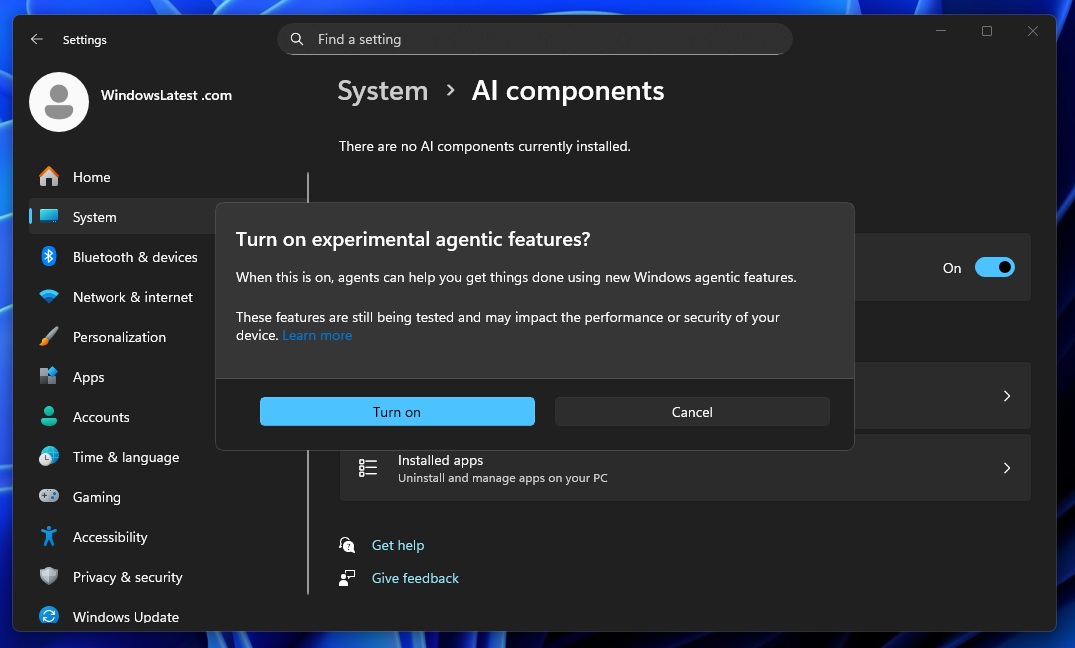
When you toggle on the feature, Windows warns that it may hurt performance and affect your security or privacy controls, but it will give you access to new “Agent” experiences in the OS.
Windows 11 lets AI agents into your Documents and Desktop folders
When you turn on the feature, you give agents access to apps and even local folders like Desktop, Music, Pictures, and Videos.
Agent workspaces require access to apps or private folders to function on your behalf. Microsoft emphasizes that it is taking care of the security implications by giving the agent workspace its own authorization (a separate account, similar to your user account), runtime isolation. Each agent will have its own defined set of do’s and don’ts.
The idea is to give the agents their own backyard on your PC, and let them run in the background at all times. You will be able to monitor logs and keep track of agent activity.
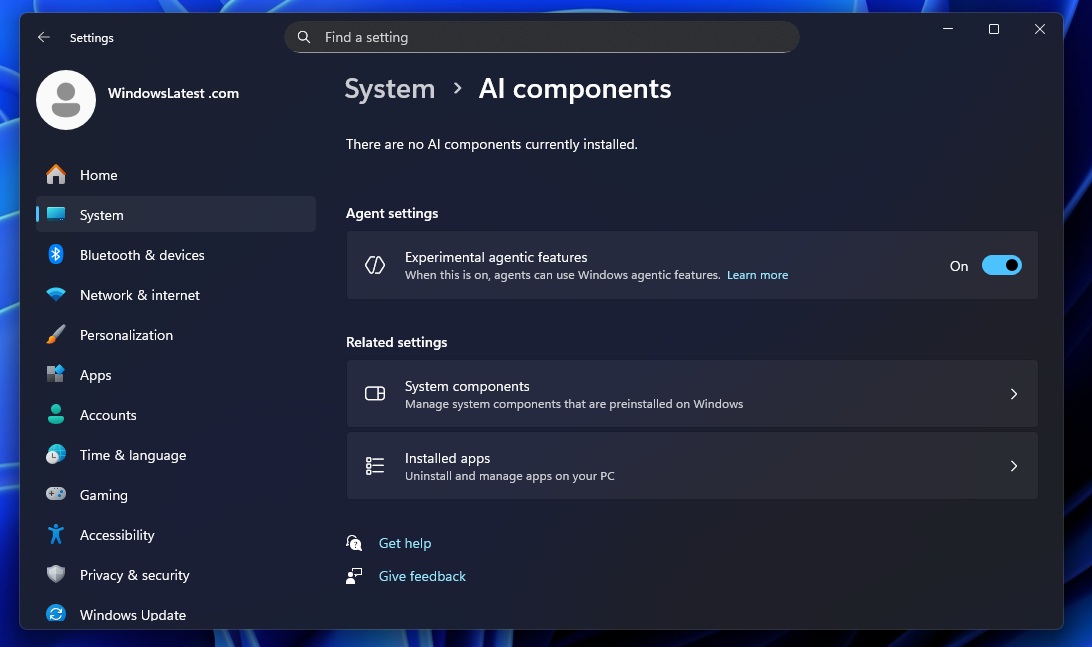
While each agent gets their own account, independent from your personal account, an agent has still Requires access to your personal folders like Documents and Desktop. You will be asked to allow the following:
- apps in windows
- Personal folders, mostly downloads, documents and desktop etc.
AI agents may have performance issues
In our tests, Windows Latest saw the experimental toggle warn of potential performance issues, and that makes sense.
AI agents will run in the background at all times and will use RAM or CPU depending on the agent’s activity. However, Microsoft’s early benchmarks suggest they won’t actually drain the PC’s power. Microsoft says AI agents will use a limited amount of RAM and CPU, but it won’t tell us how limited that ‘limit’ is.
By default, these agents are lightweight, but the problem is that some agents can be resource-intensive.
Microsoft emphasizes that it cares deeply about power users
Ironically, this new agentive experience has been announced after Microsoft’s Windows boss promised to make Windows better for everyone, including developers, whom he cares deeply about.
While the Experimental Agents feature is optional, it makes it clear that Microsoft won’t stop investing in AI for Windows 11, and agentic OS is the future, whether you like it or not.
